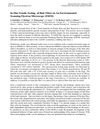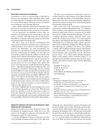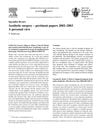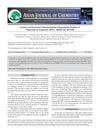 August 2007 in “Microscopy and Microanalysis”
August 2007 in “Microscopy and Microanalysis” Hair fibers break by cuticle cell slipping, shape changing, cuticle fraying, and surface cracking when stretched under specific conditions.
 December 2006 in “International Journal of Dermatology”
December 2006 in “International Journal of Dermatology” Mnemonics with one letter are useful and easy to remember for learning dermatology.
 June 2005 in “British Journal of Oral & Maxillofacial Surgery”
June 2005 in “British Journal of Oral & Maxillofacial Surgery” Advancements in aesthetic surgery from 2002-2003 include improved skin resurfacing, effective migraine surgery, satisfying hair transplants, alternative treatments for skin nevi, successful endoscopic midface enhancement, and safe techniques for facial rejuvenation.
November 1993 in “PubMed” Hirsutism, excessive male-pattern hair in women, can be caused by high androgens or skin sensitivity, diagnosed by testosterone levels, and treated with hair removal and hormone therapy.
March 2023 in “Aktualʹnì pitannâ farmacevtičnoï ì medičnoï nauki ta praktiki” Both new minoxidil formulations significantly stimulated hair growth and improved dermal metabolism.
January 2023 in “International Journal of Trichology” Alcohol-free minoxidil is better for treating hair loss in Indian men.
 May 2019 in “Asian Journal of Chemistry”
May 2019 in “Asian Journal of Chemistry” Finasteride forms three new products under acidic stress.
April 2018 in “Rossiiskii Zhurnal Kozhnykh i Venericheskikh Boleznei” All types of alopecia involve hair follicle damage, especially in alopecia areata.
 March 2018 in “European Urology Supplements”
March 2018 in “European Urology Supplements” Patients follow treatment well, but many change medicines; good information helps compliance.
 September 2017 in “Journal of Investigative Dermatology”
September 2017 in “Journal of Investigative Dermatology” BMPs are crucial for hair growth and their decrease by androgens leads to hair loss.
April 2016 in “International Journal of Drug Delivery”  March 2011 in “European Urology Supplements”
March 2011 in “European Urology Supplements” Gene variation affects prostate issues and hair loss.
 September 2004 in “PubMed”
September 2004 in “PubMed” Androgenetic alopecia, or hair loss, is influenced by hormones and genetics, and can be treated with medications like minoxidil, finasteride, or hormone therapy, with effectiveness evaluated after 6 months.
717 citations,
June 2010 in “Nature” Alopecia areata involves both innate and adaptive immunity, with specific genes linked to the disease.
505 citations,
December 2011 in “Journal of clinical oncology” MK-2206 was safe and effectively blocked AKT signaling in cancer patients, warranting more trials.
488 citations,
July 2021 in “Cell” Fibroblasts are crucial for tissue repair and inflammation, and understanding them can help treat fibrotic diseases.
 451 citations,
March 2005 in “Endocrine Reviews”
451 citations,
March 2005 in “Endocrine Reviews” The enzyme steroid sulfatase is linked to breast cancer and other conditions, and inhibitors are being developed for treatment.
425 citations,
August 2002 in “BioEssays” The cornified cell envelope forms a protective barrier in skin and hair, using specific proteins and lipids to maintain effectiveness.
 408 citations,
January 2017 in “Science”
408 citations,
January 2017 in “Science” Some wound-healing cells can turn into fat cells around new hair growth in mice.
408 citations,
May 2004 in “The Journal of clinical endocrinology and metabolism/Journal of clinical endocrinology & metabolism” Dutasteride more effectively lowers DHT levels in men with enlarged prostates than finasteride.
328 citations,
November 2020 in “Nature Materials” Hydrogel scaffolds can help wounds heal better and grow hair.
 306 citations,
April 2019 in “International Journal of Molecular Sciences”
306 citations,
April 2019 in “International Journal of Molecular Sciences” The skin has a complex immune system that is essential for protection and healing, requiring more research for better wound treatment.
 279 citations,
June 1990 in “Journal of Clinical Oncology”
279 citations,
June 1990 in “Journal of Clinical Oncology” Adding chemotherapy to tamoxifen improves survival for older breast cancer patients with positive nodes.
 264 citations,
January 2008 in “Journal of biomedical optics”
264 citations,
January 2008 in “Journal of biomedical optics” Zinc oxide nanoparticles in sunscreen do not penetrate deep into the skin.
258 citations,
July 2005 in “Journal of lipid research” DGAT1 enzyme helps make diacylglycerols, waxes, and retinyl esters.
 237 citations,
June 2013 in “Nature Medicine”
237 citations,
June 2013 in “Nature Medicine” A protein from certain immune cells is key for new hair growth after skin injury in mice.
 212 citations,
September 2015 in “Journal of Investigative Dermatology”
212 citations,
September 2015 in “Journal of Investigative Dermatology” The document provides a method to classify human hair growth stages using a model with human scalp on mice, aiming to standardize hair research.















